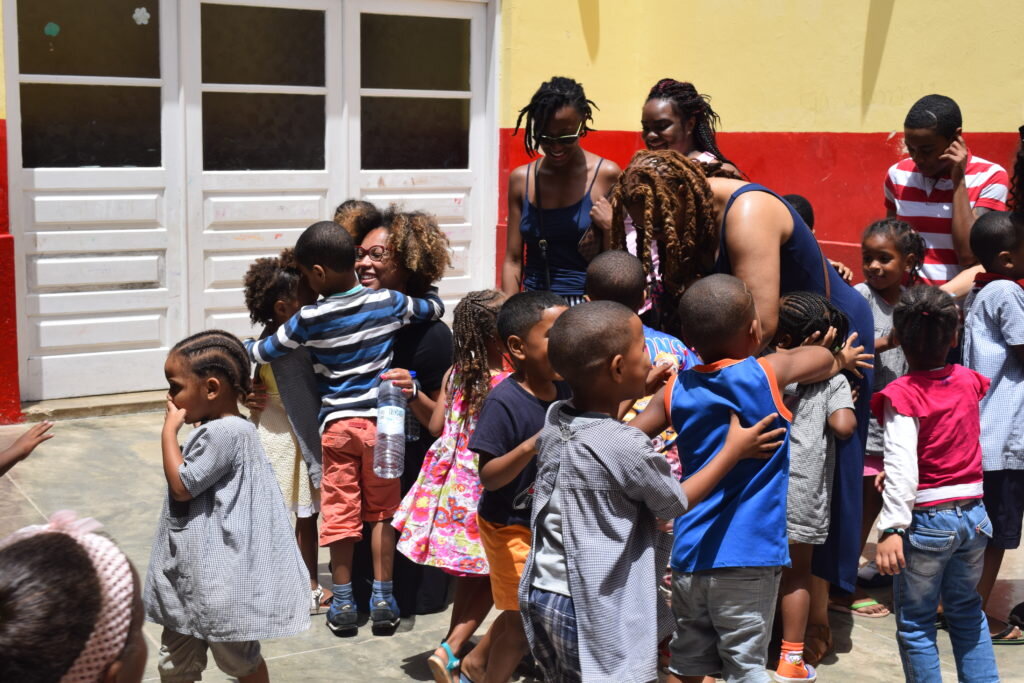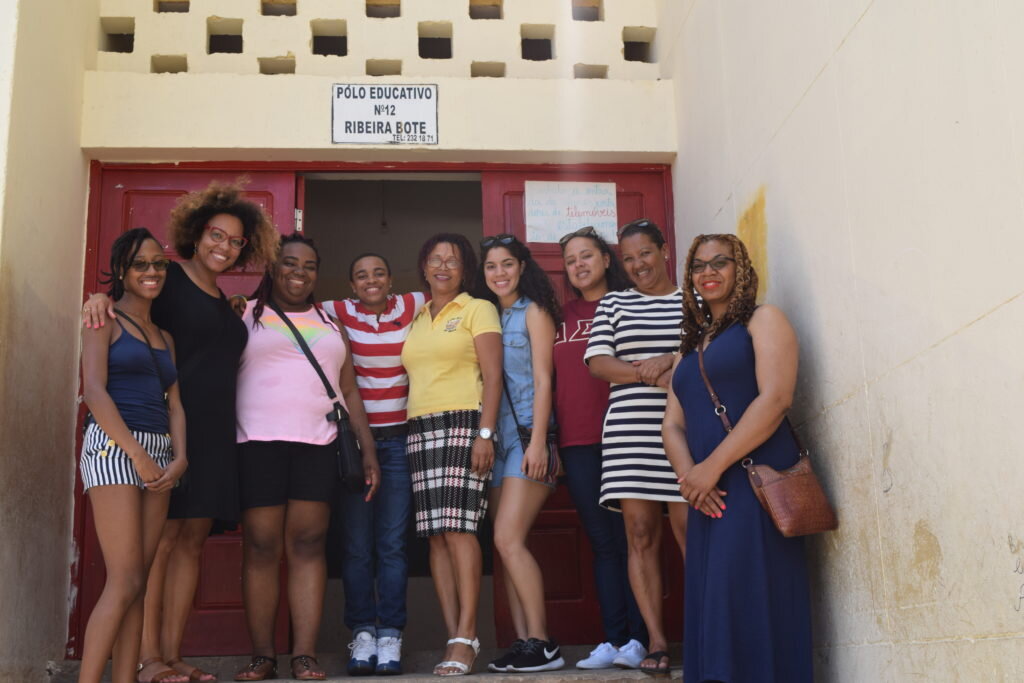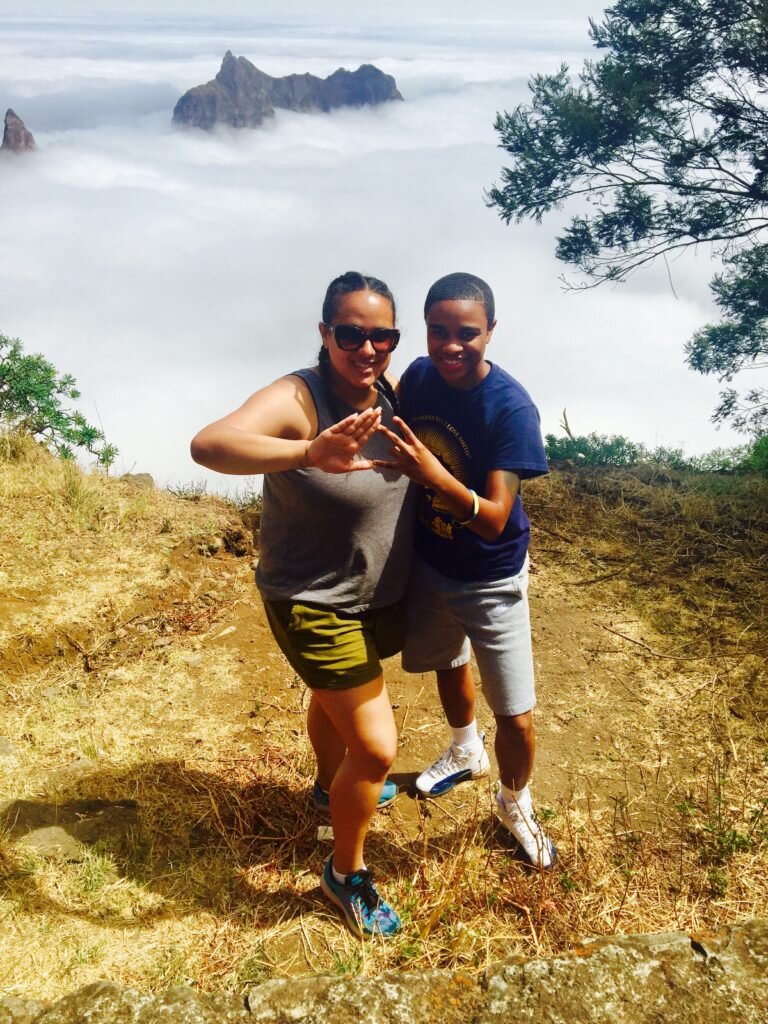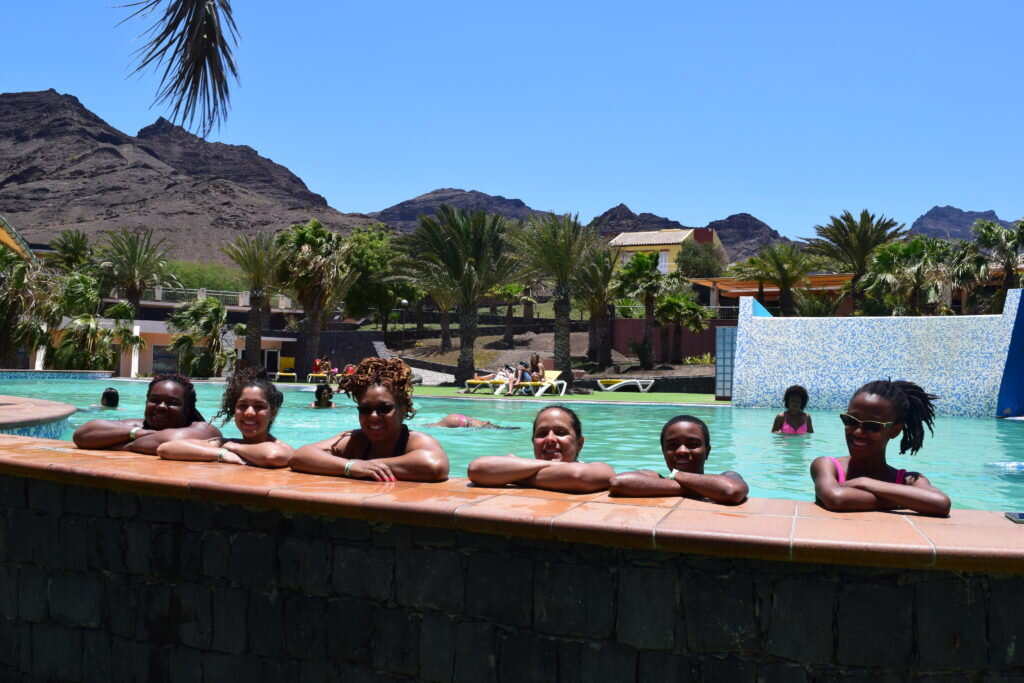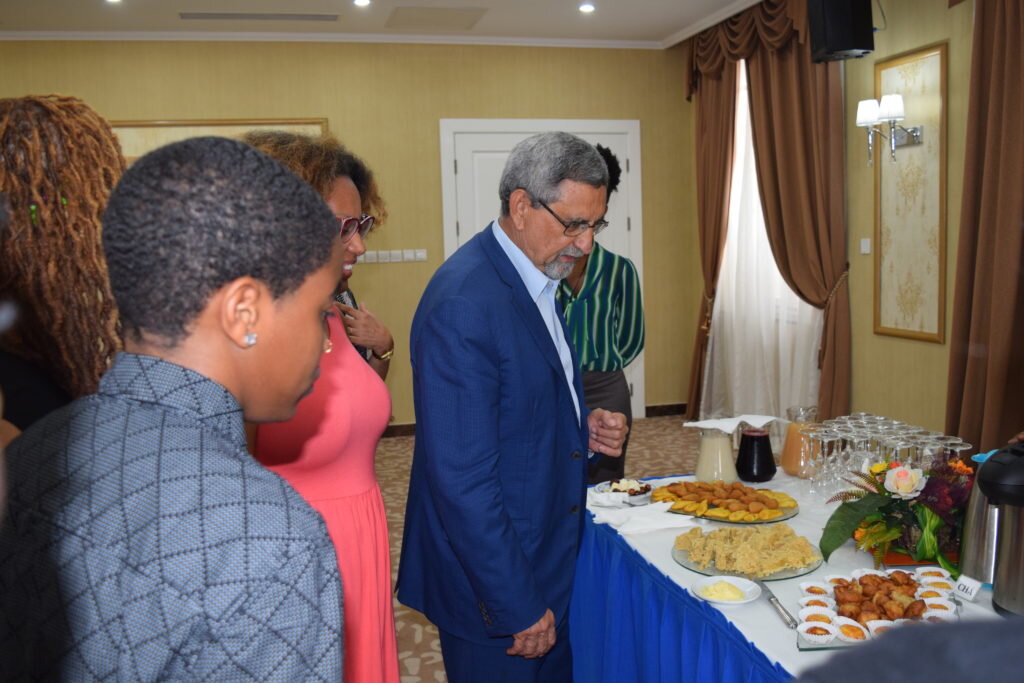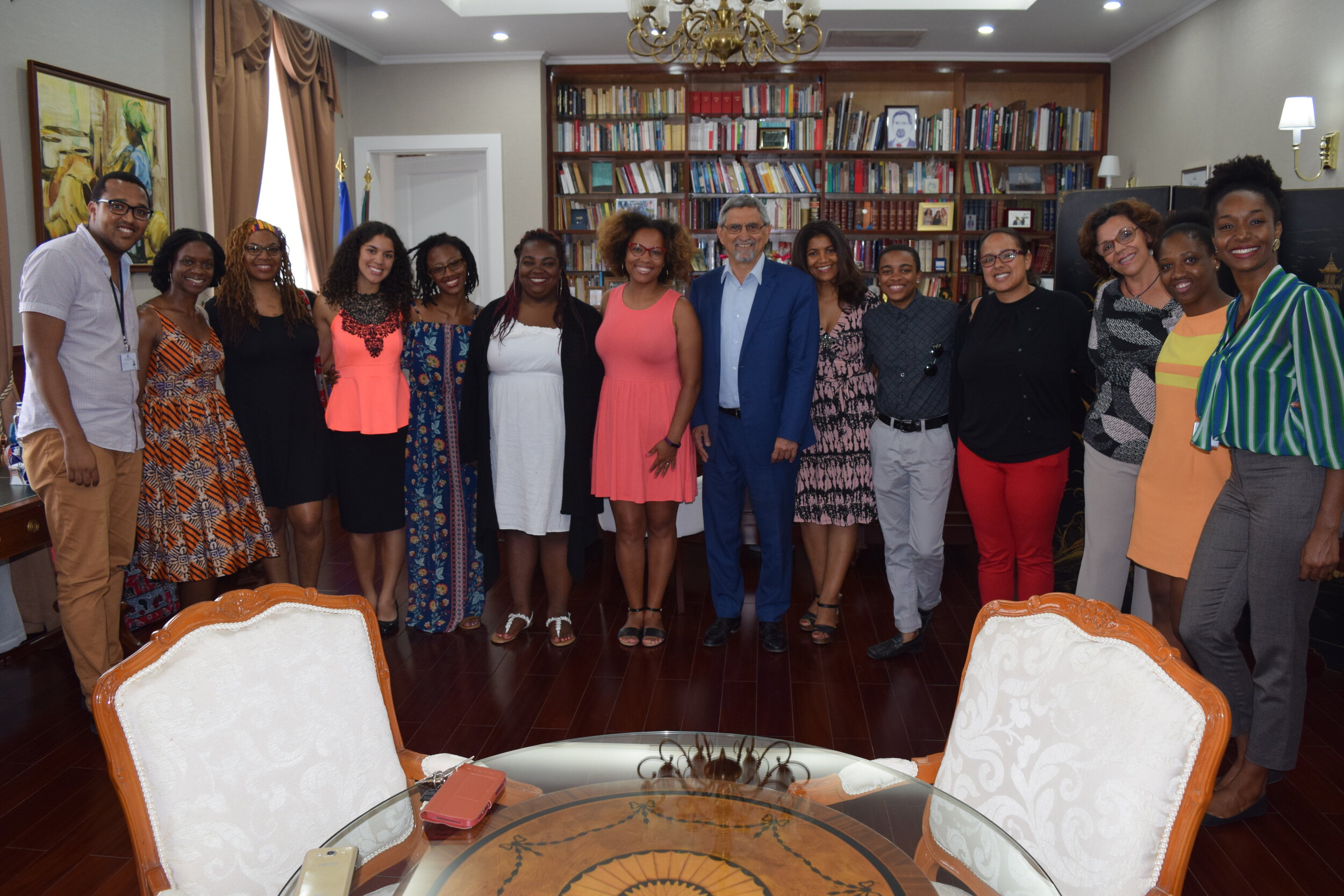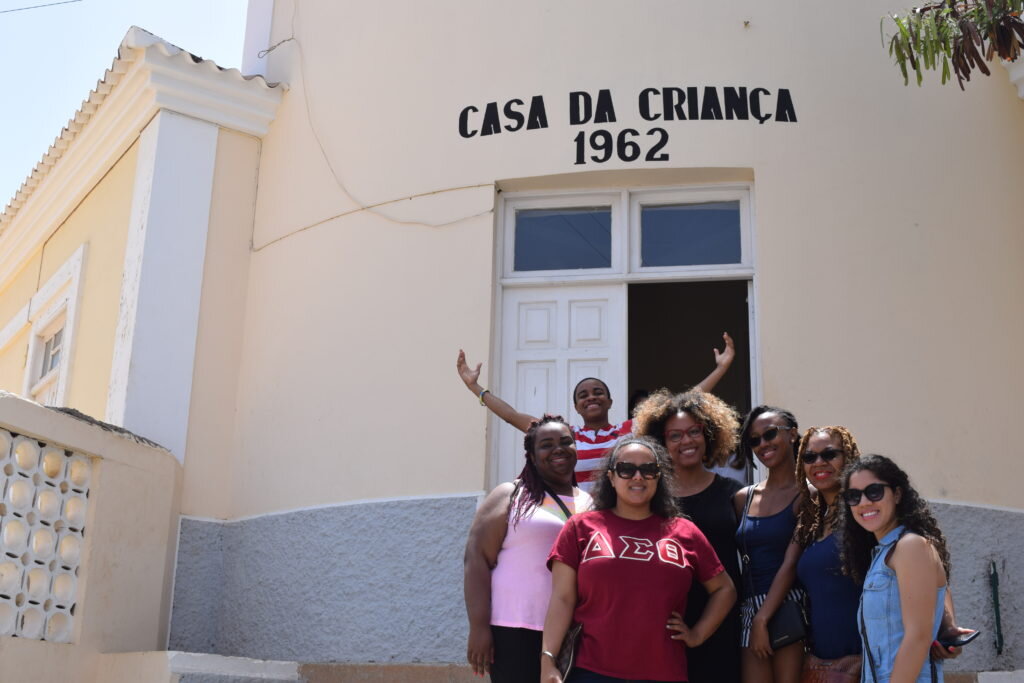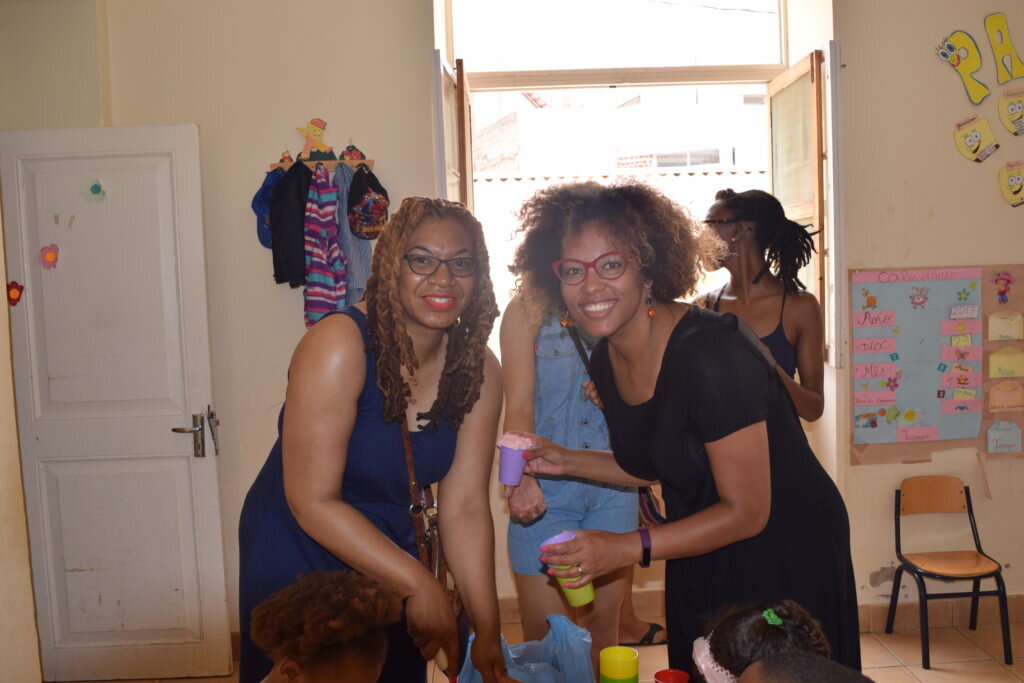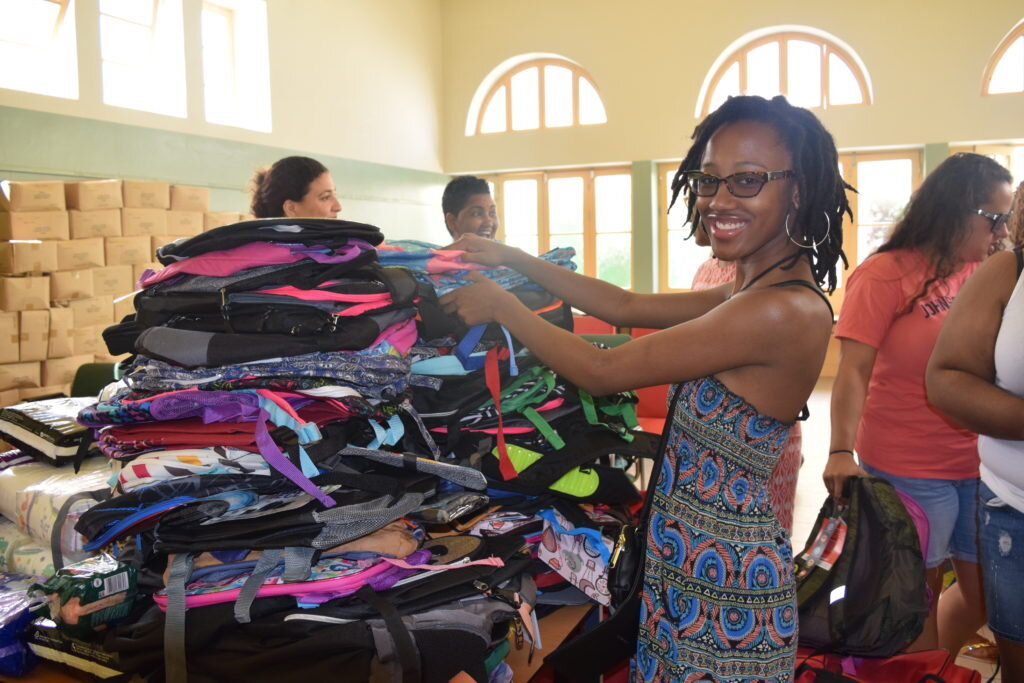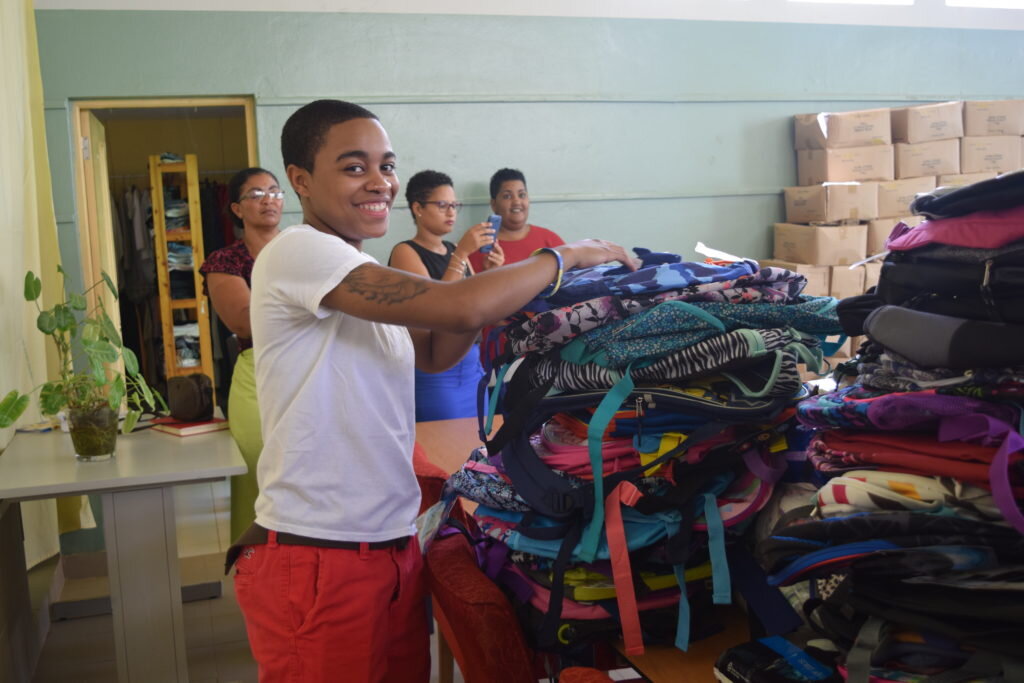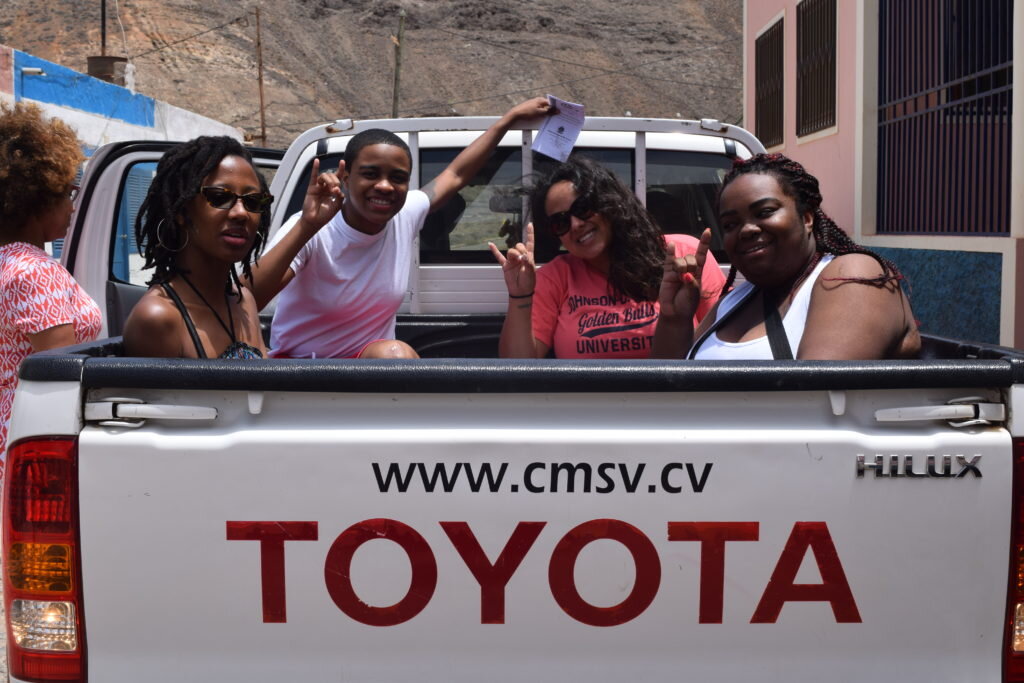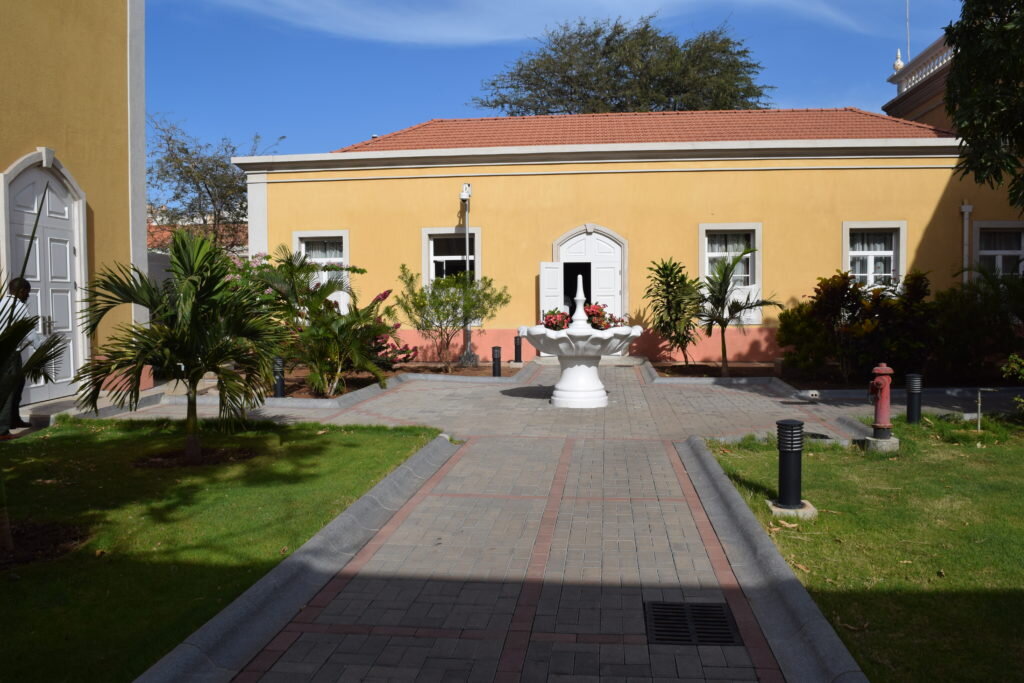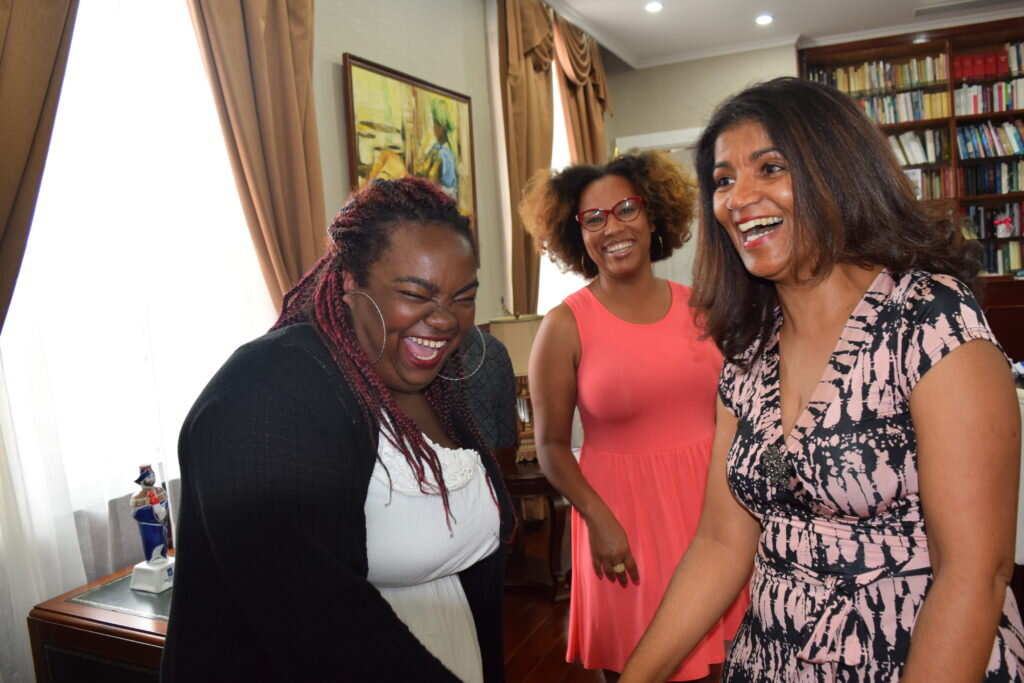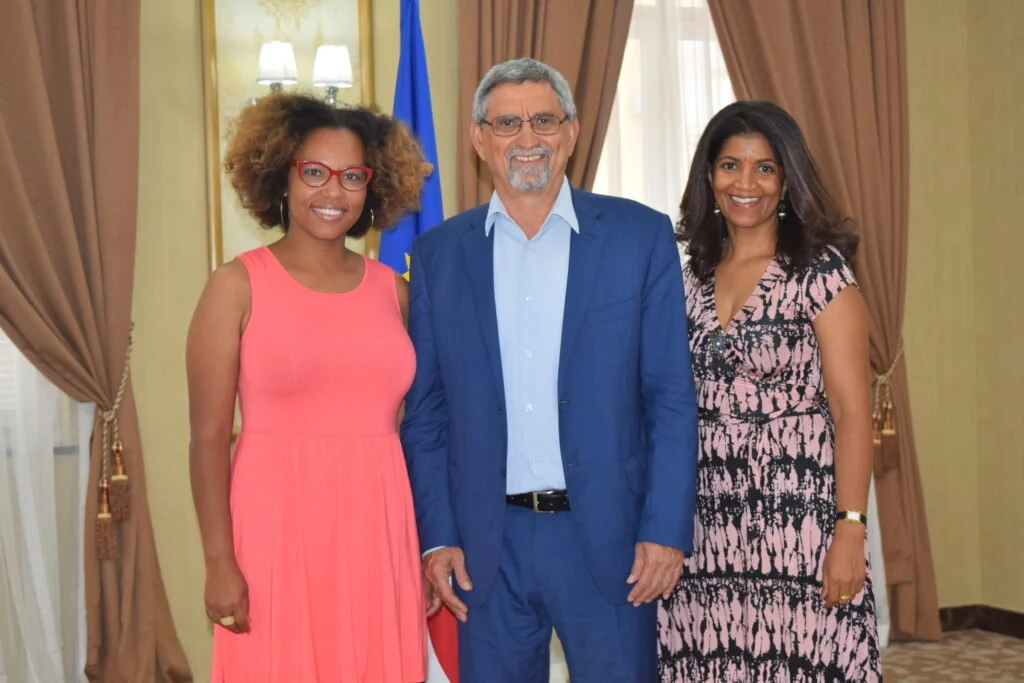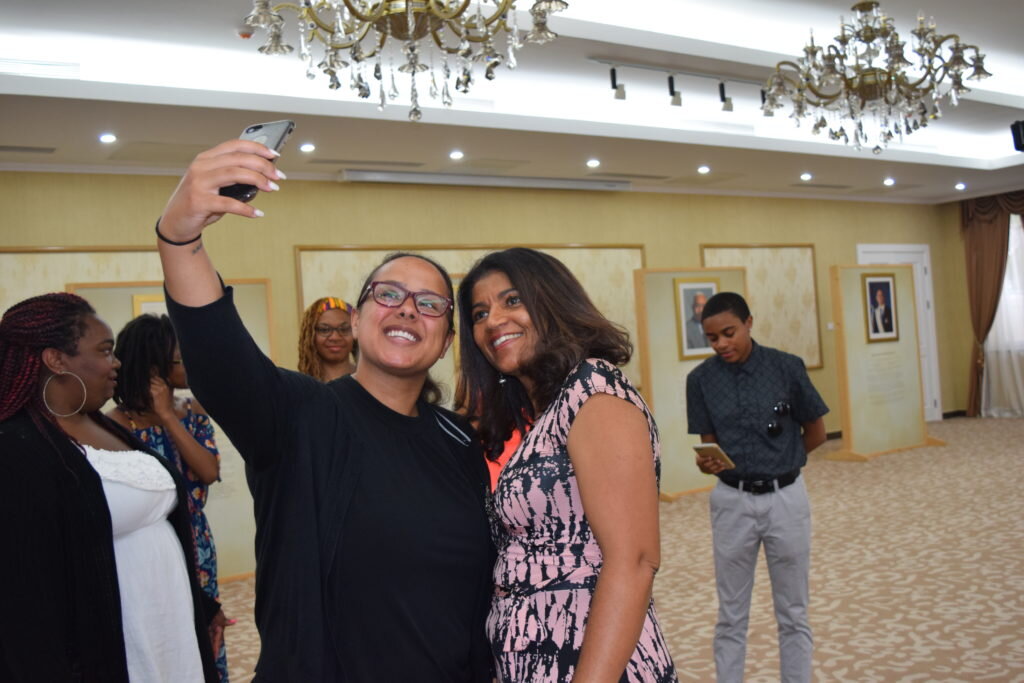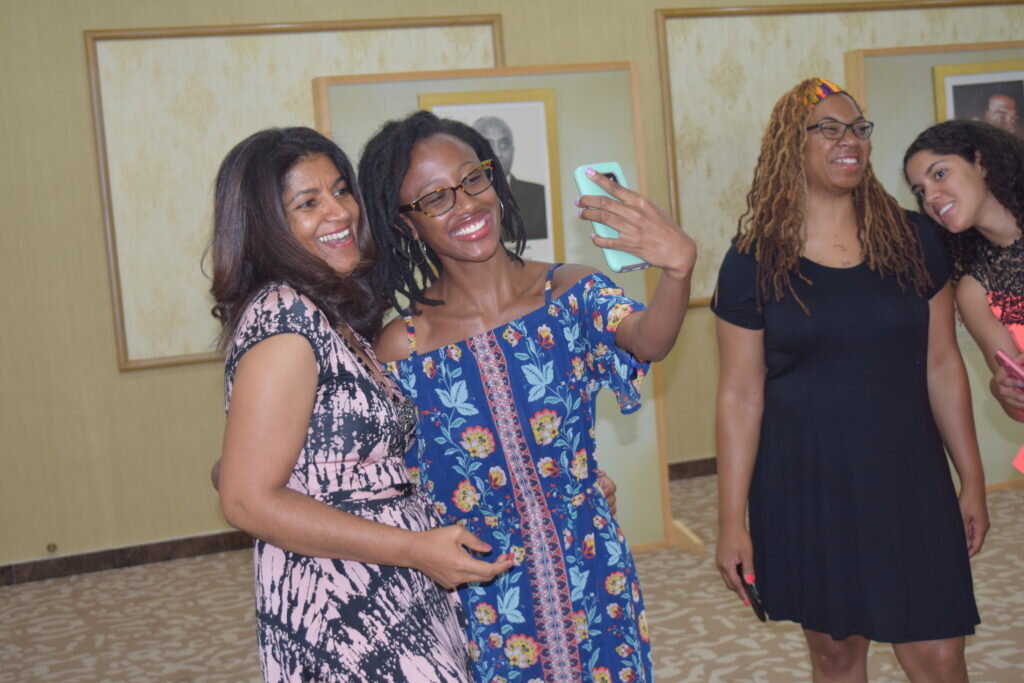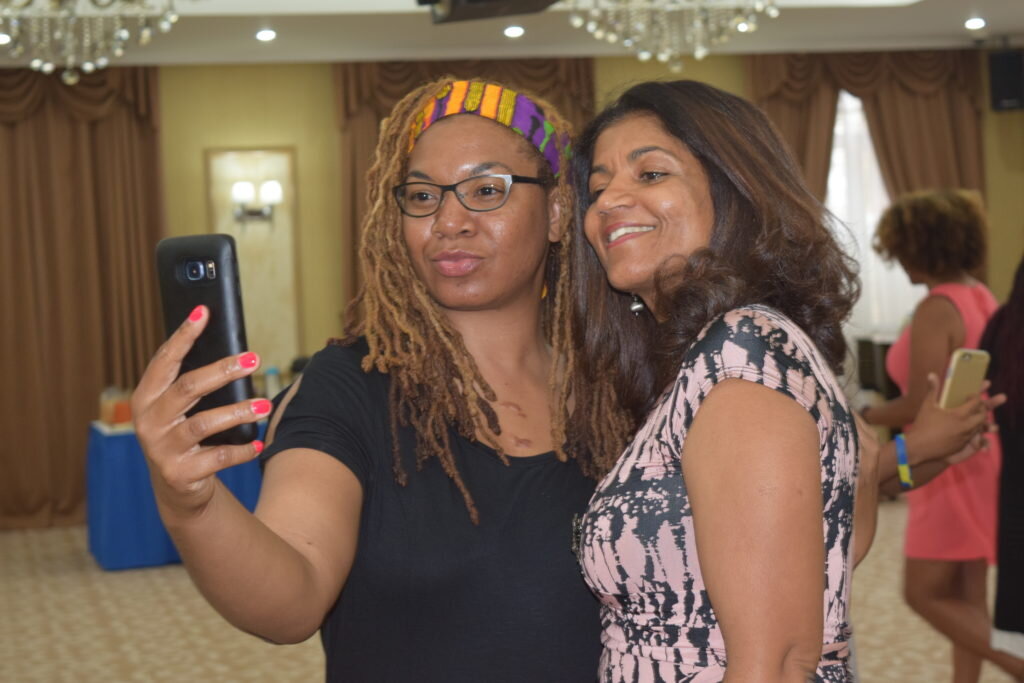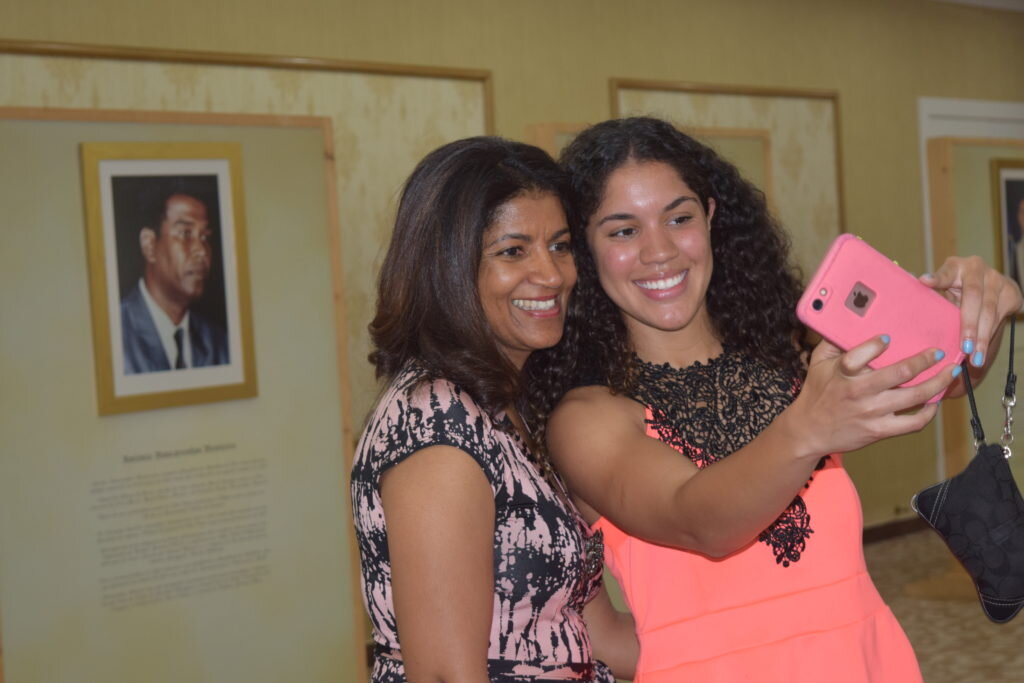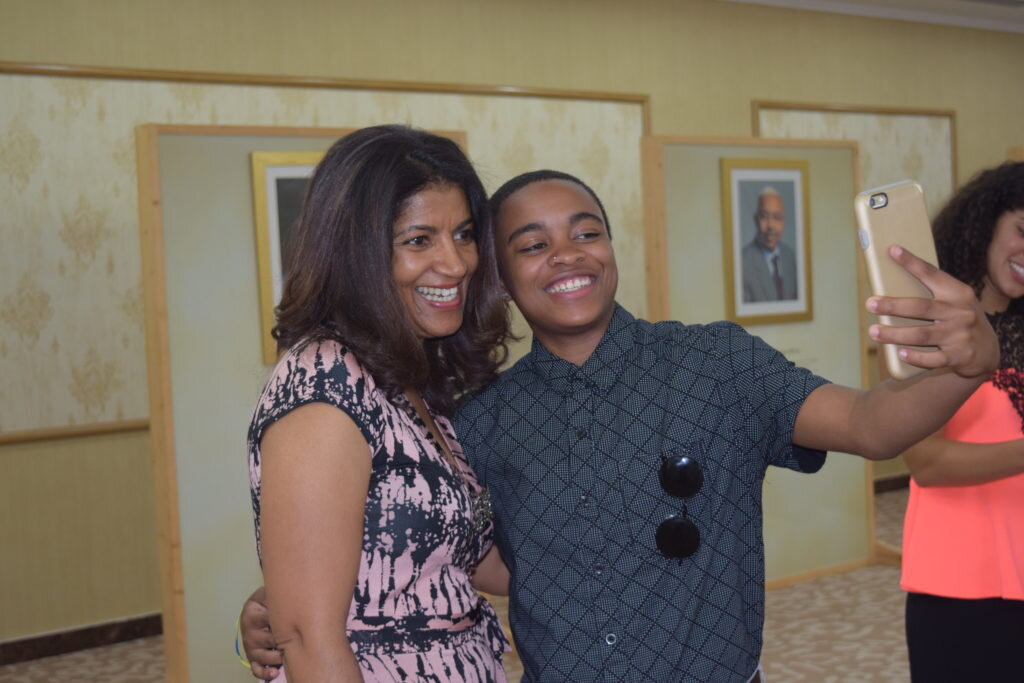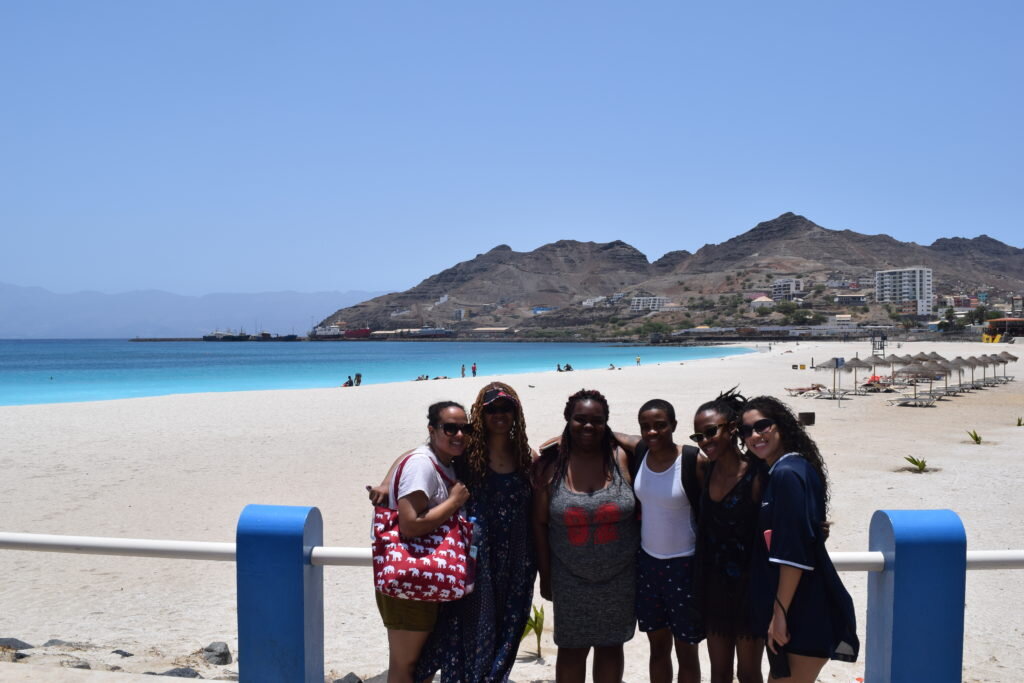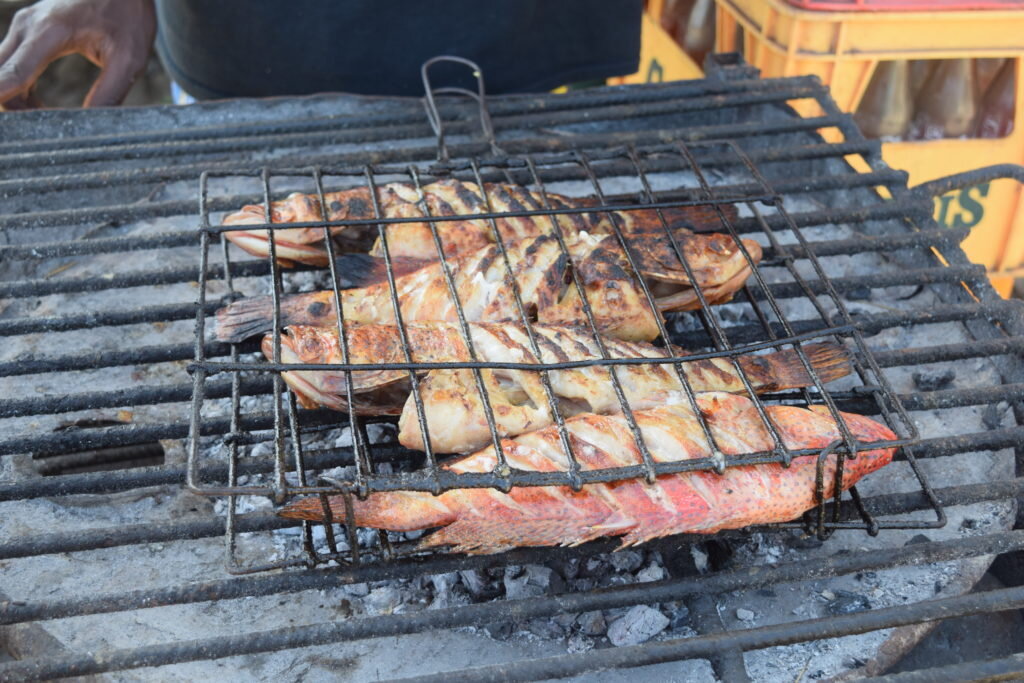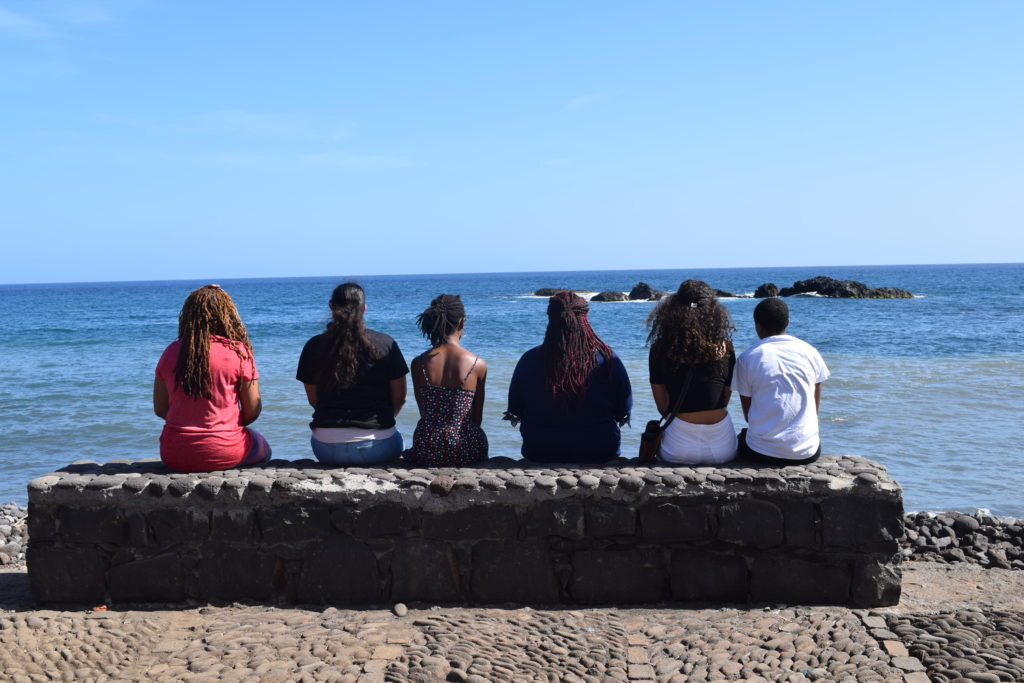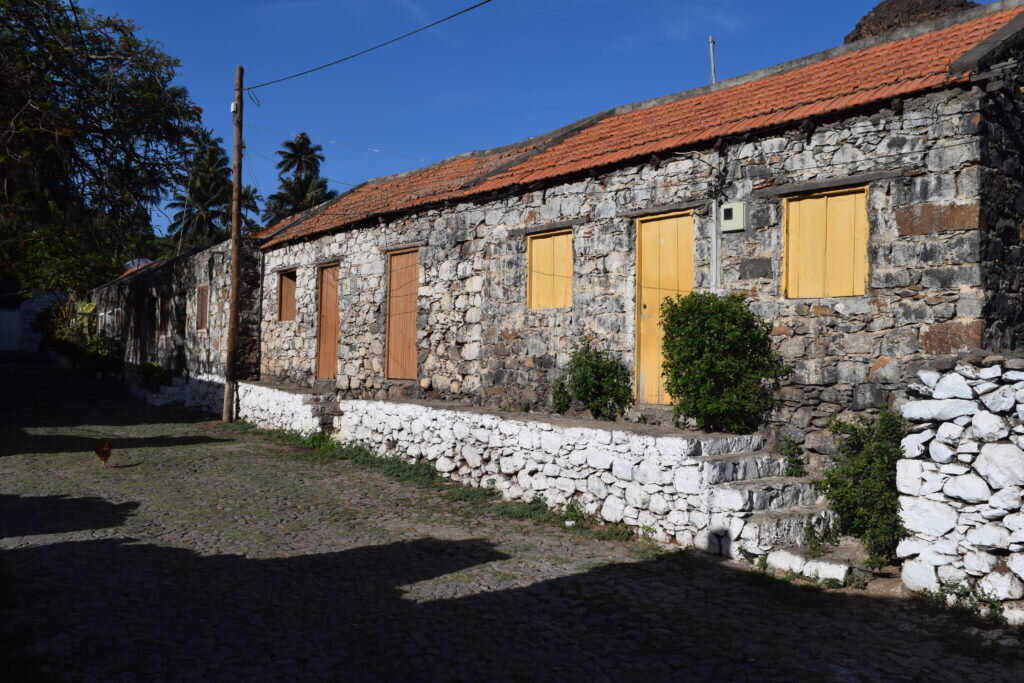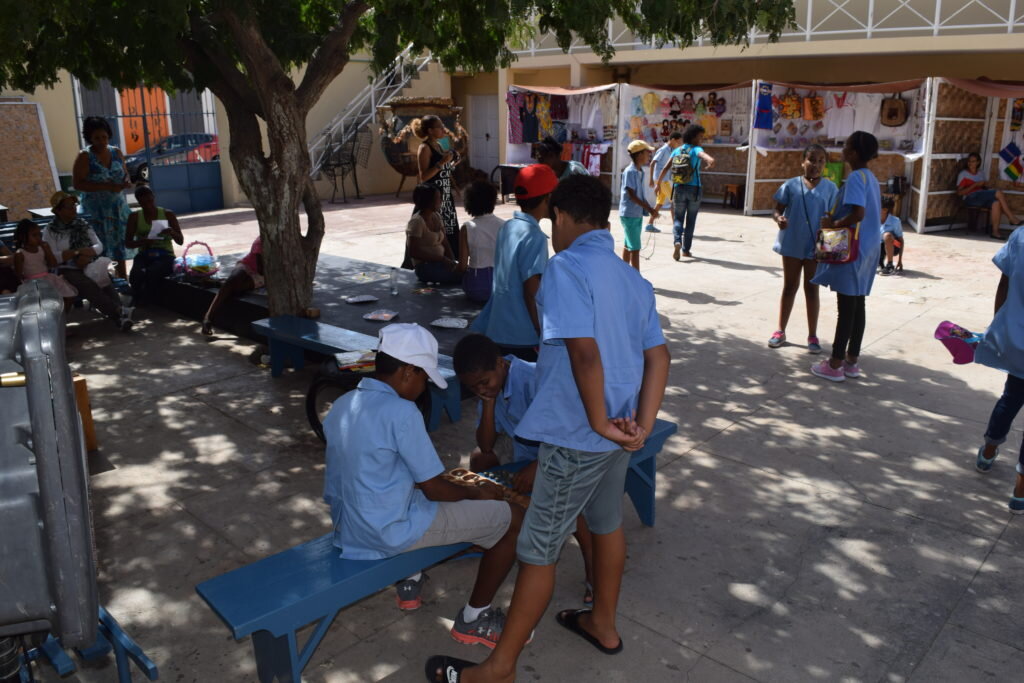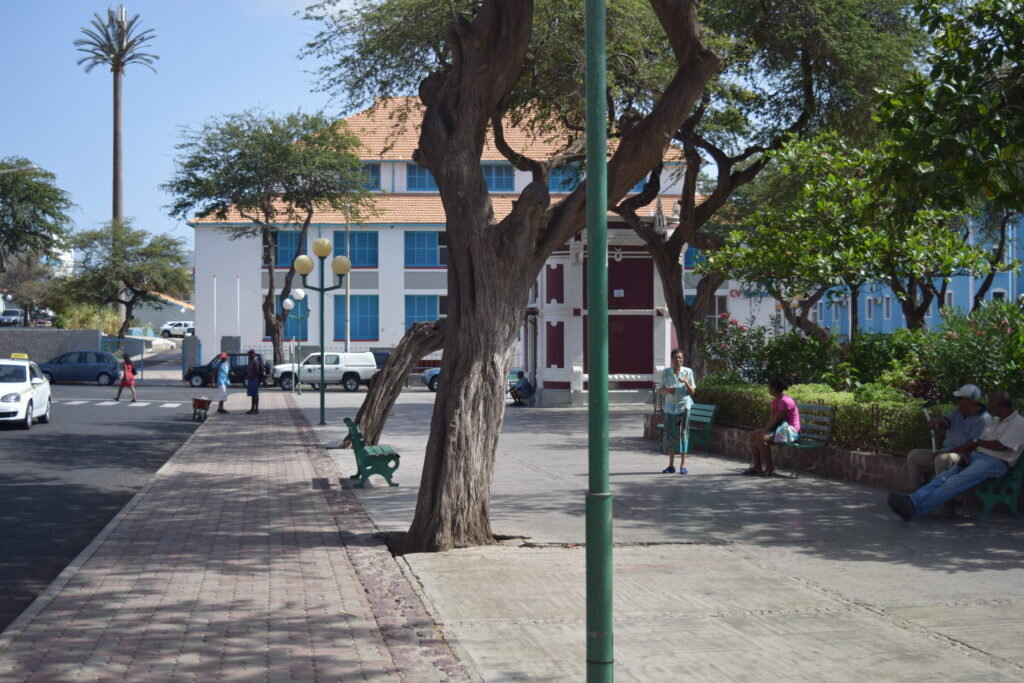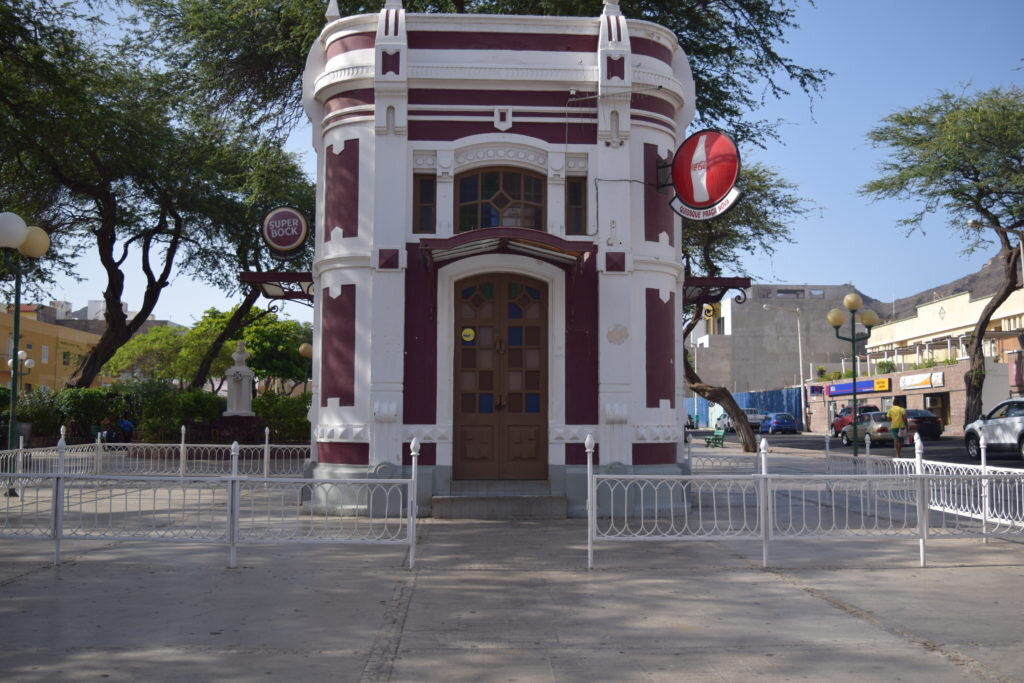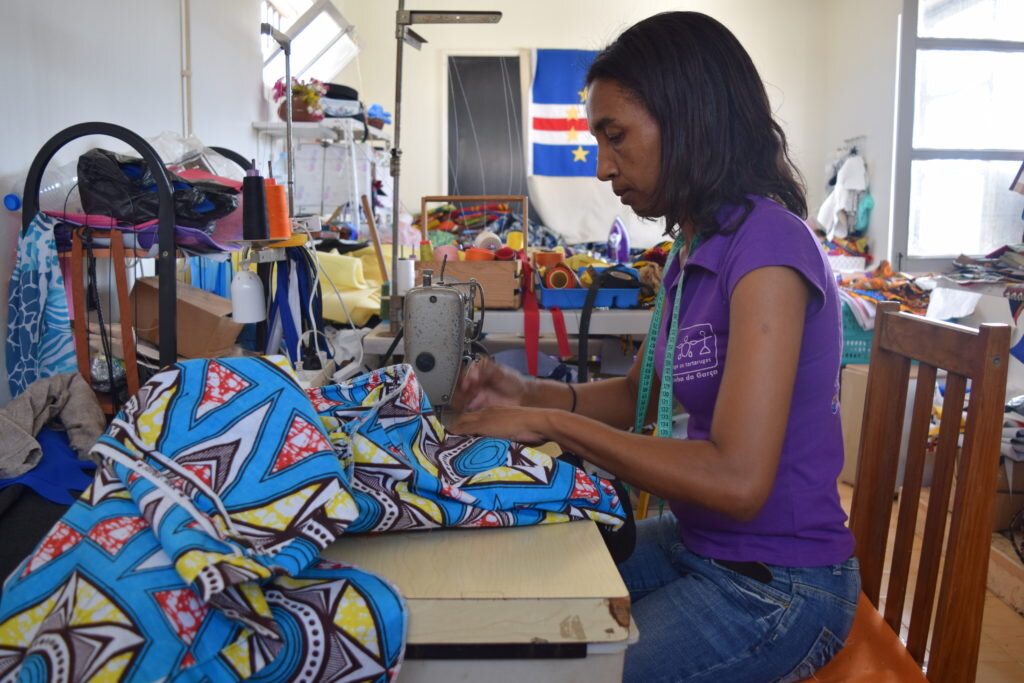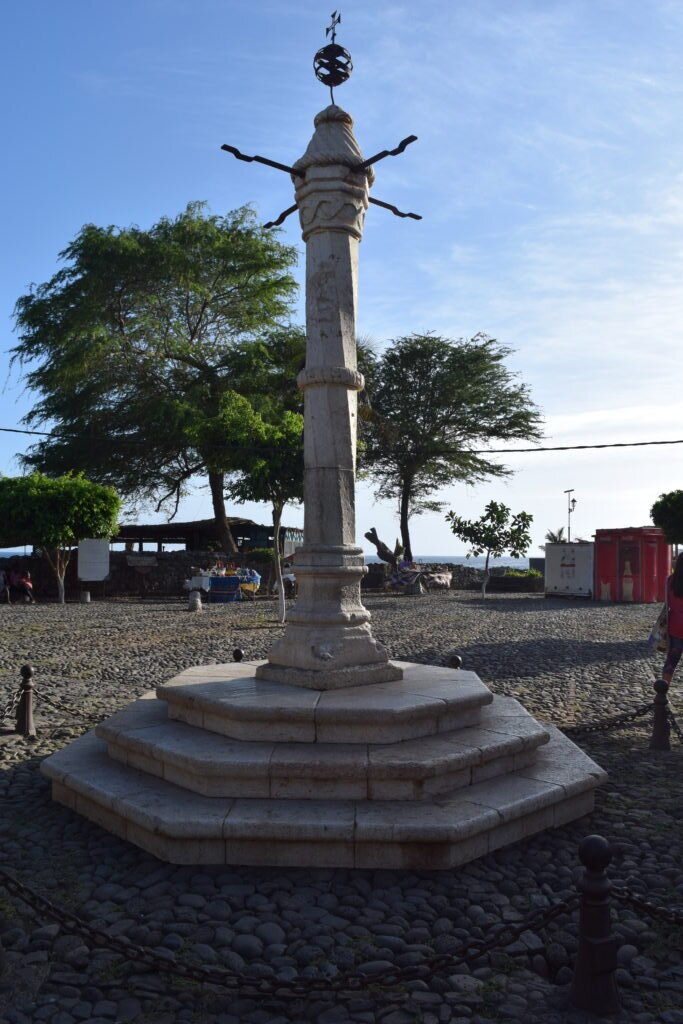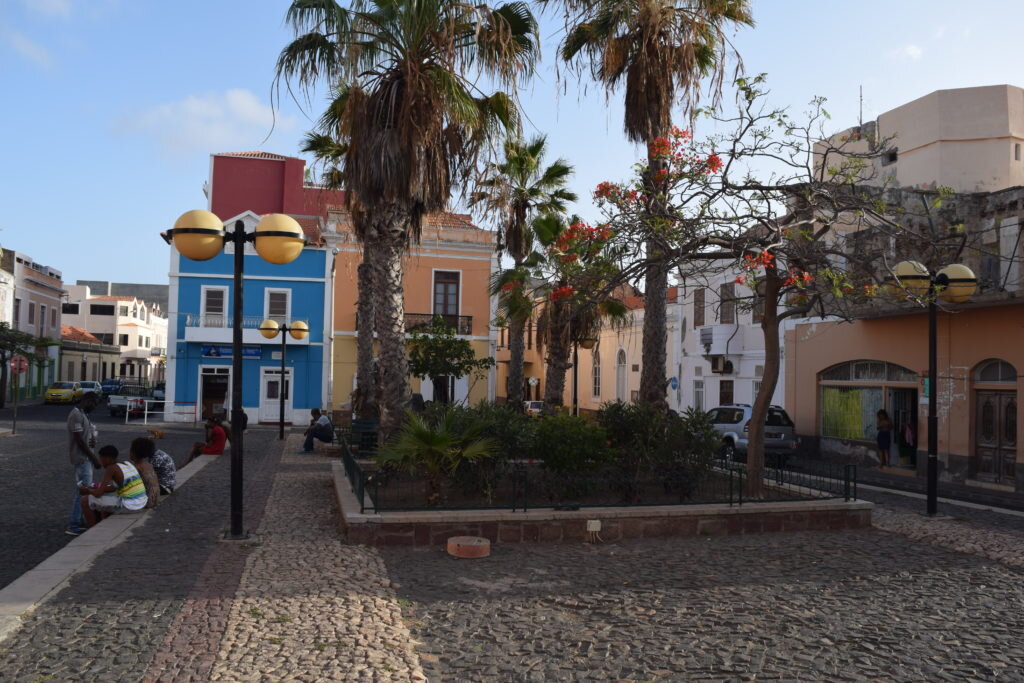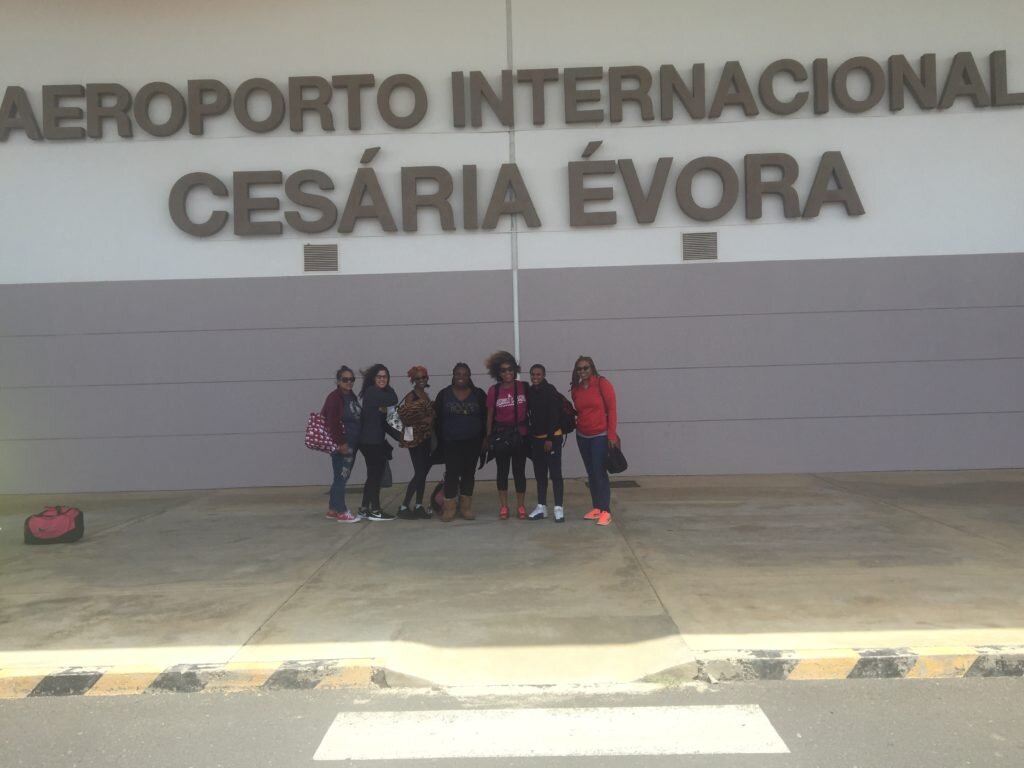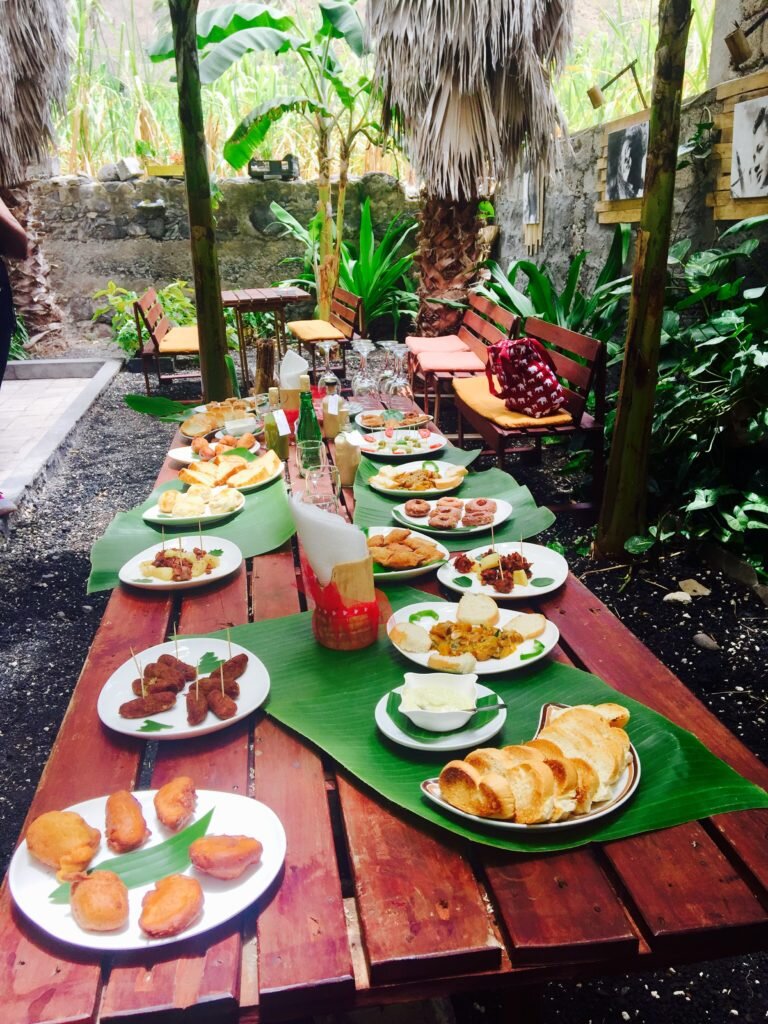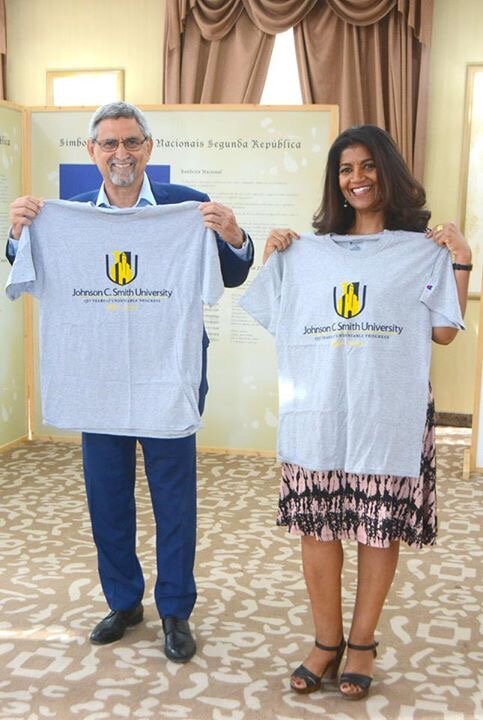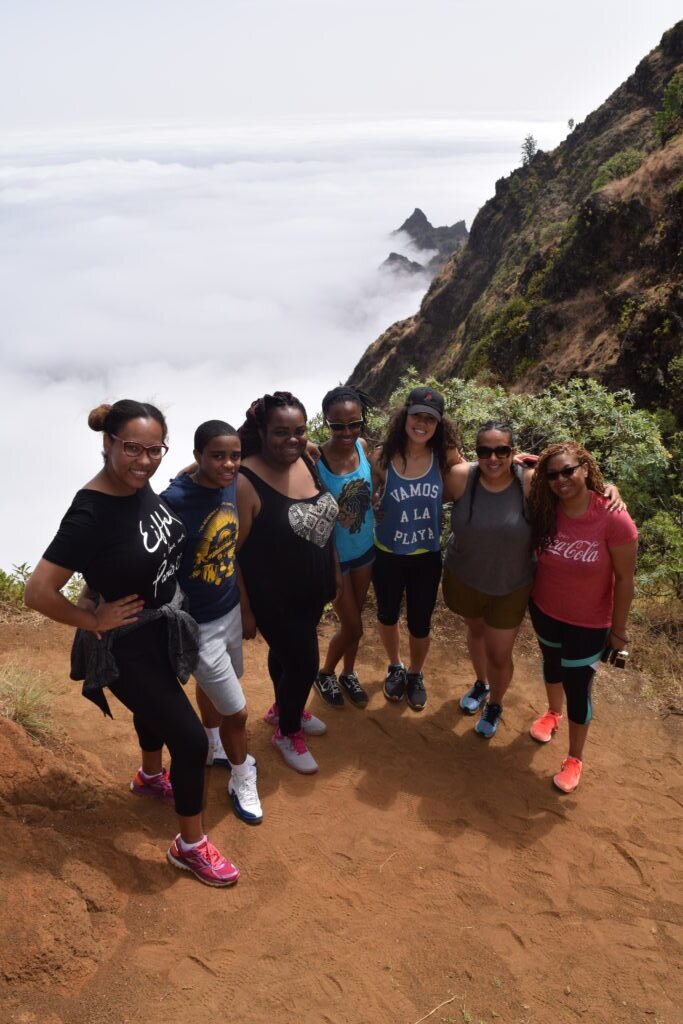A CABO VERDE TRAVEL EXPERIENCE: (Re)Imagining The Way We "See" Africa and "(De)Romanticizing" Study Abroad Programs
When the plane touched down at the Cesaria Evora International Airport in my native Sao Vicente, I was overwhelmed with emotions and my eyes filled with tears of joy. That always happens when I visit home. Like all the other Cabo Verdeans on the plane, I clapped enthusiastically and grateful to the Universe (and the pilots) for a safe flight. This time, it was a bit different. Pride filled my heart, knowing that I was about to show off my homeland to 6 students from my University. I had no doubt, they too, would fall in love with this beautiful piece of heaven known as Cabo Verde. As a result of several months of carefully planning a comprehensive experience that I thought they would enjoy and learn from, my students would travel to three of the 9 inhabited islands (Sao Vicente, Sao Antao and Santiago), depicting three different environments at different phases of socio-economic development since this West African country’s independence from Portugal on July 5, 1975 as well as meet key individuals in communities and institutions, reflecting each students’ areas of study and research interests. The overall purpose of the trip was to rebrand and reimagine the way we think and speak of "Africa", beyond the sensationalized media portrayals of war, hunger and corruption, to truly get to know the people, the history, and the culture. I write this piece with pride, featuring selected heartfelt statements from my students’ travel journal entries (statements in quotes and italicized belong to the students). Don’t skip out on my students’ top 6 list of things to consider when thinking of studying abroad at the end of the article!
“When São Vicente came into view it was the most breath-taking thing I have ever seen in my life. Seeing that clear BLUE (and I mean CLEAR AND BLUE) water touching the sandy beaches it was amazing! One of the most beautiful things I have ever seen in my life. Once we landed and I saw the island I fell in love with it even more.”
“…Today has come that we have to leave São Vicente. I was not happy to be leaving this island. Being here, falling in love with the island and its people I feel like I was home the whole time. I will say that I left a piece of me in São Vicente. I am grateful to all that it showed me.”
For seven months, I worked tirelessly to organize a study abroad experience that included a semester long course on contemporary Cabo Verdean politics, society and culture as well as biweekly meetings with the students to answer all questions but mainly to get to know each other prior to the trip, discuss local customs, learn useful Cabo Verdean Kriol that would help them on a day-to-day basis and other nuances that academic texts don’t provide. Most of the students had never travelled internationally. The biweekly meetings were very helpful in easing the travel jitters they were experiencing. For the course, I made the bold decision to tell the Cabo Verdean story from the perspective of Cabo Verdeans and only used publications by Cabo Verdean scholars as well as invited key community individuals in the Cabo Verdean community for lectures we conducted over skype and facetime. It was a rewarding experience and I am so glad the students responded well to my decision.
There was also a service learning component to this experience. We collaborated with No Backpack Day, a local organization founded by 14 year-old Cameroonian-American young woman, Mongai Fankam in hosting for the first time in Charlotte the First Lady of Cabo Verde, Her Excellency Mrs. Ligia Dias Fonseca and her delegation (in April 2017). As volunteers with No Backpack Day, the students were excited to meet the First Lady during private functions and asked her questions related to Cabo Verde and what they should expect in May during their stay in the country. As a result of our work with No BackPack Day and with the support of the Office of the First Lady and the Cabo Verdean Embassy in Washington D.C., we travelled to Cabo Verde with 14 suitcases filled with more than 200 backpacks, school supplies, diapers, sanitary pads, and other personal care items. These items were donated to the community bank in the Island of Sao Vicente. You can read my blog article on the visit from First Lady, Mrs. Fonseca as well as additional details and information on our collaborative efforts with No Backpack Day.
You Can’t Have Work and No Play!
The trip included visits to a day care center, primary and secondary schools, a day center for street children and another center for children/young adults with exceptional needs. Our hearts were filled with joy and gratitude after these visits, because of the bright smiles in the faces of the children and how much we learned from them about what is meant to “live simply and happily”.
“I was surprised to learn that the students take classes in sessions, either morning classes or at night. The students were all so bright and focused. I remember one girl telling us she wanted to be a club DJ when she got older, making us all laugh. Coolest thing about the school, however, was that they teach their students sign language so that they can communicate with the students who have hearing impairments. We also got to meet the students who were hearing impaired and see firsthand how they communicate and their little names for one another that they do through sign language.
“The day center was a better trip than I expected. I was prepared for a sad trip but instead our spirits were kept high. The young adults had prepared a concert for us, danced, and one girl even sung to us in English. We were all so impressed and I almost shed a tear. I couldn’t help but notice that they weren’t letting their illness hold them back. They had adapted to cerebral palsy, and continued to live their lives, happily. Realizing this, that they could be ill and still find joy in life, was the best part of the day.”
We hosted a traditional afternoon tea for students and faculty from the University of Mindelo in Sao Vicente Island. The students exchanged experiences, leading to a discovery that university students, regardless of geographic location, go through similar struggles. I am also glad that my students built friendships with the local students. During our stay they were able to do “normal” things that college students do like go to parties and compare notes on favorite music, artists and overall social scene.
“I’ll never forget meeting with the university students because of their pleasant personalities and how much they talked to us. Their English was pretty good and I was jealous of how many languages they spoke.”
“…the next day we got up early to meet the President of the University. This meeting was amazing, we learned about the university and the different challenges they face and programs they have. What amazed me the most was how the University had help from the students with exceptionalities in designing programs to fit their needs.”
The sun and beautiful beaches of Sao Vicente Island, an adventurous tour through the mountainous and majestic island of Sao Antao as well as a tour of the historic first city of Cabo Verde, Cidade Velha (Old City) on the island of Santiago added so much value to our experience!
“I was so taken aback when I saw the ocean in all its glory and beautiful beaches, sand, sea shells and mountains. The mountain views from the airplane are out of this world amazing. I still couldn’t believe that I was in Africa seeing all of this and able to witness how people live in another continent. When my group traveled to Santo Antao Island, and traveled above the clouds, I was amazed at what I was witnessing. There were so many clouds as far as my eyes could see and here I was standing right there on the edge of the cliff with my IPad mini, soaking it all up. It was then that I thought of my son and how he would be amazed at that and how much people back in the States were missing all of this. I felt so honored, so blessed and so fortunate to be witnessing that.”
“The most beautiful part of the trip for me was stepping away from the water and into the mountains. We got up early to catch a ferry from Sao Vicente to Santo Antao island. We got a tour of part of the island, barely scratching the surface but the scenery was amazing. How many people can say they’ve taken a picture on a mountain above the clouds? Each stop on the tour filled with beauty – and with every mountain, every hill, and even one caved-in volcano … I fell in love.”
“…We went to tour São Filipe Royal Fort. The tour was very depressing. The enslaved Africans built the fort to keep enemies away (as required by King Philip I of Portugal). They brought the stones used all the way from Portugal. We were able to see the cannons that had cannon balls still stuck in them and where they stored their water. The most emotional part of the tour was when we stood by the “gateway” into the island. I couldn't help but think about all the enslaved Africans that had to build this fort and the way they were treated. The fort was amazing but the way it came to be is sick and upsetting.”
Traditional Lunch Hosted by
President Jorge Fonseca and First Lady, Ligia Dias Fonseca
I am not sure how many students who travel abroad get to say that during their experience they met the president and first lady of the countries they visited! However, my students will forever cherish this moment.
We toured the Presidential Palace, ate yummy traditional food and had a chat with the President and First Lady. Since the students had previously met Mrs. Fonseca during her visit to Charlotte they felt a special connection with her. She is warm, inviting and down-to-earth! Because of this, they named her “Tia (auntie) First Lady” and of course, the President Fonseca became “Tio” (uncle). Once I told them, Cabo Verde's First Couple chuckled and thought their new titles as "tio" and "tia" were fun and fitting! The students especially enjoyed how much of a good sport the First Lady was in taking selfies with them! We received gifts from them and we also gave them commemorative t-shirts marking 150 years of our University’s existence.
“You know you are royalty when you get a personal tour of the presidential palace and have lunch with the President and First Lady. I’ve never taken a tour of the White House, but I’m sure it’s not as cool as this. Everything about the palace was amazing, from the color schemes in the different offices, to the history, and the overall structure of the buildings. We took so many pictures and learned all at once. One thing that stood out to me were the exit signs in the buildings, they all had Chinese characters on them. I later learned that the Chinese helped build the presidential palace due to their close relationship with Cabo Verde. Overall, President and First Lady are unique and beautiful people. They were so welcoming to us. And of course, my favorite part of the tour – the food!”
“It was a very informative tour that allowed us to see a place that most citizens of the country haven’t even been allowed to see. When we saw the First Lady she was very excited. She gave us all big hugs and shouted, “I remember you!” to all of us who met her previously. The President spoke with us for a while and we took pictures. Then we moved downstairs for tea with them! The food and drinks were delicious. We talked with the President for about an hour. We all asked him some questions and his answers were funny and/or insightful. We took individual pictures with him and the First Lady. Then we got a little gift from them and we gifted them JCSU shirts. We also got to take selfies with Tia First Lady, which was hilarious. According to the First Lady’s advisor he must have really liked us because he never speaks with people for that long. That was a special thing to hear. We were also invited to come back..”
“We got a tour of the house and went into the “Oval Office.” After we finished the tour we ate some amazing food…Which was even more amazing because I hadn’t eaten all day. After we ate, we took some photos and the First Lady and I snapped for all of our snapchat fans. Everyone was so shocked that I knew the President and First Lady of Cabo Verde and I was just like that’s my aunt and uncle, crazy people! A couple of snaps later and auntie and uncle had to leave, you know they have a country to run.”
I Have Always Travelled Home as A Native...
This Time It was Different
By the end of the trip, I was tired! After all, I had spent months planning the trip, coordinating details with the University, travel agency as well as our local partners in 3 islands, including the Office of the First Lady and the President of the Republic. During our trip, I also interpreted portions of our experiences when we didn’t have an interpreter available. My brain was so confused as to what language to think in and at times, I would even start speaking to my students in my native Kriol.
Yes, I have been home for research and conference presentations but I have never organized a trip and been responsible for other people’s experiences, especially students. So yes, it was different but a very rewarding life changing experience not only for the students who traveled with me but for myself. It gave me the opportunity to view my home country with fresh lenses, to reevaluate and appreciate where I come from, for what it is…simple and happy living. I was especially thankful to those institutions and trained professionals who work with our elders and children, particularly those in vulnerable conditions. The tours of the centers that care for them made me realize how much strategic planning has gone into ensuring that they live a good and decent life but also how much work there is still to be done in supporting their efforts. Resources are scarce and they need the help. During our meeting with the United States Ambassador to Cabo Verde, Mr. Donald Heflin, my students were particularly interested in knowing what projects were in the works by the U.S. government to help centers like the ones they'd visited, since they noticed that embassies from Australia, Holland and Luxembourg were very supportive with improving the infrastructure and providing equipment for individuals with exceptional needs.
“Traveling to Cabo Verde-Africa was eye opening because of how Africa is portrayed in the United States. It makes me realize how vast Africa is as a continent and how different each country will be. Visiting Cabo Verde makes me want to travel and experience more!”
“The planning that went into this trip including the hotels, taxis, translations, travel guides, resorts and visits to the university, meeting with the students, meeting the President and First Lady and touring the Presidents’ quarters, the ferry rides, air travel and everything else in between was impeccable. I would have never guessed in a million years how top of the line everything would be. It was as if I won this opportunity on the game show: The Price is Right and this was an all-inclusive trip to the Island of my dreams. It was a dream come true and my professor was so instrumental in all of this happening for me. I thank God that I was able to be blessed with this trip and will always keep it dear to my heart that I was able to see a part of where my ancestors come from.”
“In all, this was a trip of a lifetime. I ate amazing food, met amazing people, and got to experience all Cabo Verde had to offer. In all, I learned about how Cabo Verdeans not only teach, but also learn from individuals with exceptionalities. I hope I can incorporate what I learned in Cabo Verde into my studies, to help further the inclusion and acceptance of individuals with exceptionalities.”
Against the Romance of Study Abroad and
Reimagining The Way We See “Africa”
When we began this journey in October of 2016, during the first study abroad interest meeting, I did not imagine that we would embark on this rewarding journey together. Traveling with this particular group of students to my homeland was such a blessing. They were kind, friendly, respectful of the culture, courteous, curious, a pleasure to be around and overall thankful for the experience. I am grateful that the University supports global engagement of this magnitude via the passport initiative (every first-year student who is a United States citizen is eligible to apply for and receive his/her passport, free of charge) and the study abroad experience which over the years has taken students to several countries such as Brazil, Morocco, Senegal, Egypt, Turkey, Russia and Cuba. I hope that many more students continue to take advantage of these opportunities.
However, I couldn’t help but to think of a recent article that I came across on www.africasacountry.com, entitled “Against the Romance of Study Abroad” by Ben Gardner and Ron Krabill, both professors at University of Washington, where they too have organized study abroad programs to African countries. In this article, they question the intent and reciprocity of study abroad programs and whether or not the concept of “global partnerships” is really misleading. The idea is that there are many institutions who are “partnering” with countries in the developing world or other countries with less resources but that these relationships aren’t mutually benefiting, only catering to U.S. institutions but not to the communities of where these visits are taking place. I invite you to read the entire article via the link, http://africasacountry.com/2017/07/against-the-romance-of-study-abroad/.
I bring attention to this article because it is important for those of us planning or coordinating study or travel abroad experiences for our students and/or other groups, to really understand that we must honor and respect the people, the history, the culture we are about to come in contact with. We must be realistic and genuine with our intentions. We must be willing to contribute in various ways to the society but also be open to learning from it. We must be honest, intentional and strategic with the type of experience we are looking to engage in. Lastly, we must understand that we are dealing with real people and not just subjects who will “perform” their cultures for us during our stay. As a native of Cabo Verde, I must be honest in saying that I often found myself questioning if I was being authentic or simply “pimping” out my own people, culture and country for the sake of our university program. In the end, I was able to sleep at night knowing that I tried my best to do the right thing.
By using Cabo Verde as a case study and visiting three of the ten islands, the students learned that even in the same country, there is diversity in people’s experiences, history and local culture. As a continent, Africa is made up of over 50 countries with different cultures, ethnic groups, historic backgrounds and more. It is very important to travel and get to know people, to hear their stories through their own voices and not through what outsiders imagine and conclude them to be.
Through their personal experiences and direct interactions, my students see Cabo Verdeans as happy, kind and welcoming people and not as destitute citizens of a poor country they read about in a textbook. They also understand the economic and social complexities of this small and relatively young, developing island nation. They have made friends, whose names they remember and will maintain contact with thanks to social media. They will remember how special they felt during the private lunch with an African president, the first lady and how these two very important individuals invited them to come back to their country...anytime. They will remember that Cabo Verde's "morabeza" is very similar to North Carolina's "southern hospitality" which is where our university is located, recognizing that in this case, Blacks in Cabo Verde and Blacks in southern United States have this in common. They will remember the names of each island and how each environment made them feel. They will remember what made them sad and extremely excited during this trip. They will consider a return visit for the fresh fish and fresh air. They will continue to reflect on their own existence as humans and what they can do to make the world a better place through service and other acts of kindness. They will remember standing at specific places where their enslaved ancestors stood, feeling emotional, connected, conflicted, and extremely proud to be Black!
As Nigerian author Chimamanda Adichie mentioned, “The single story creates stereotypes and the problem with stereotypes is not that they are untrue but that they are incomplete. They make one story become the only story.”
Lessons From Students:
6 Things to Consider When Going on or Considering a Study/Travel Abroad Experience
Learn as much about the place you’re going to as possible. Allow yourself to develop an appreciation for the historical importance of the place, not just the beauty. Also try to find out the current issues surrounding the country and figure out how you could possible help, especially if you really connect with the place.
Consider this: It’s better to live a life full of amazing, unforgettable experiences than live a life full of “collecting” things. Material items don’t bring happiness, but fulfilling experiences and relationships do! Travel and see the world now while you’re young and able, you’ll thank yourself later. Remember, every single new experience is an opportunity to learn and grow as an individual.
Stay open-minded. Study abroad is an opportunity to learn but also a time to experience. You’re free to be whoever you want.
Leave the images of the world painted for you behind and paint the world for yourself.
Immerse yourself into the culture of the place you are in. Don’t get stuck in your little “Americanized” bubble. Pop it and dive head first into the culture, hang out with the locals. They will show you the best of wherever you are going.
Don’t let your age discourage you from immersing yourself into other cultures. By doing this, you learn so much more about not only yourself, but the thought process of others in the world around you and it makes you appreciate them and life much more.



